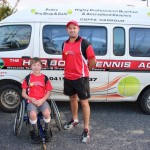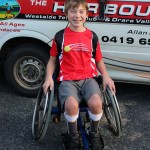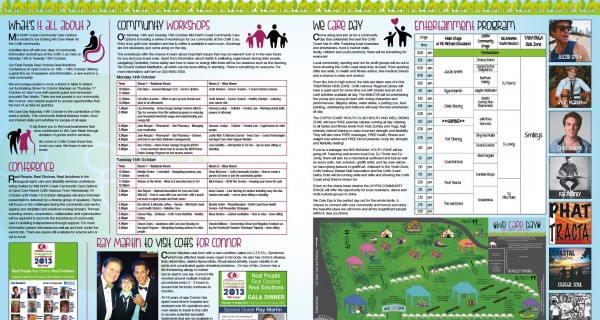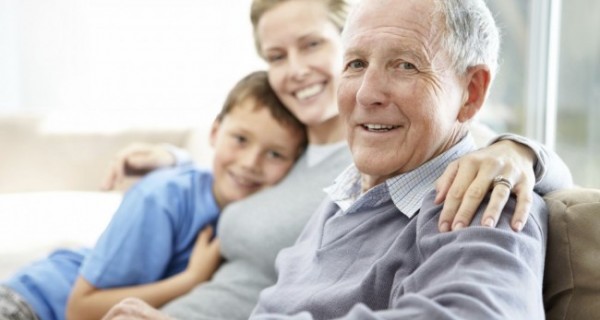Connect With…Harbour Tennis Academy at Westside Tennis Club
09 Sep 2014
Meet the Harbour Tennis Academy at Westside Tennis Club – one of our connectABLE project partners. The Harbour Tennis Academy was established in 1996 and offers tennis coaching programs across our region in Coffs, Orara, Urunga and Nana Glen. We talk with owner/manager Allan Pade, as well as student Jye and his mum Shari about what makes the club inclusive and why people of all abilities should feel welcome to pick up a racquet and get involved.
Why did the Harbour Tennis Academy at Westside Tennis Club partner with CCO in the connectABLE project?
Allan: We have been successfully organising the Key Employment Northern NSW Wheelchair Tennis Tournament in Coffs over the last 10 years and saw this partnership with connectABLE as a natural progression for our Club. We hope it will ‘open our doors’ to many more and new tennis players.
What does social inclusion mean on a practical, day to day basis for the Club?
Allan: The ability for everybody to have the opportunity to play tennis and finding ways to make that happen.
Jye: It was challenging at the start because I was in a basketball chair. The first couple of lessons were really about trying to figure out how to do it.
Shari: Through the wheelchair tournament at Darlington Park we met Rick Engles – a well known wheelchair tennis player who has represented Australia. We bought his old chair and had it modified to fit Jye.
Jye – How did you come to join West Side Tennis Club?
Jye: I wanted to do something different because I was a bit bored. One Sunday morning we hired the Westside Tennis courts for an hour. We tried having a casual hit but I wasn’t very good at it and Mum couldn’t hit the ball directly back to me! A man and his son (who had an intellectual disability) came off the court before we went on. They saw us struggling and offered to help us out. Through them we found out about Al coaching people with a disability and his association with organising the wheelchair tennis competition at Darlington Park each year.
How does the Club make sure Jye is included and has the same opportunities as others?
Shari: Al’s been awesome. He watches wheelchair tennis on youtube and coaching videos. At first he accessed concrete courts for Jye’s lessons until he had the skills to move the chair around on a grass court. Al considers how a person in a wheelchair serves and plays around with ideas. He’s been very accommodating. I don’t have to think – I’m just the ball girl!
Jye: Al is very laid back and quite patient. He encourages me to do well. He keeps things fun and he doesn’t mind if I mess up. I’ve actually never had to ask Al to support me. He’s just kind of always done the right thing. He has never not supported me in the right way. Al asks me what is easy and what is difficult. He tries different things and we often talk about how we’ve noticed other wheelchair users negotiate the court so he must watch people in wheelchairs playing tennis closely so he can help me. We work together. If something doesn’t work, we talk about it and then we try something different. But we always have a good laugh.
What does it mean for you to have tennis lessons at Westside Tennis Club? How important is it in your life?
Jye: There weren’t many sports I could do at high school. Because of my lessons I could choose to do tennis with my friends. I don’t play comps yet because I don’t feel ready but my goal is to compete with other able-bodied kids and really be a part of the tennis community.
Shari: Jye’s lesson is in the morning before school so a lot of the kids walk passed him on their way and see him playing tennis. This is really important for them to see Jye in a valued role and doing something other kids do. That really helped Jye.
Allan – how has coaching Jye had a positive impact on the club?
Allan: It has definitely opened my eyes up to the challenges that Jye has to overcome in not just tennis but everything else. I feel it has made me a better coach – more understanding. On the Club side of things, I feel that down the track when Jye’s tennis ability improves and he can play socially with able bodied players, then the impact on the Club will be huge. At the moment Jye is getting private lessons so the rest of the club does not see Jye out there as much but this is what we’re working toward.
What would you say to other people living with a disability in our community who are considering taking up a sport/activity but aren’t sure how they’ll fit in etc?
Jye: Try to be as optimistic as possible. Put yourself out there as much as possible. Otherwise people just see you as another person with a disability and that really doesn’t help. Try to be yourself. You just need to think outside the square.
Shari: We’ve always been really open about Jye’s disability and his strengths. We always tell people we’re all doing our best to support Jye and he is the best person to ask about how to do that. He can do anything – just a little bit differently. We encourage people to think of Jye not as the Cerebral Palsy boy or the disabled boy – he is Jye, a 14 year old boy who loves tennis and swimming and we want to support him to be independent. He just happens to have Cerebral Palsy.
We Care Week
Community Care Options inaugural We Care Week 14-19 October was enough to make local residents feel that this is the best place on...
© 2013 Community Care Options. All Rights Reserved. Website by Giant Media.

